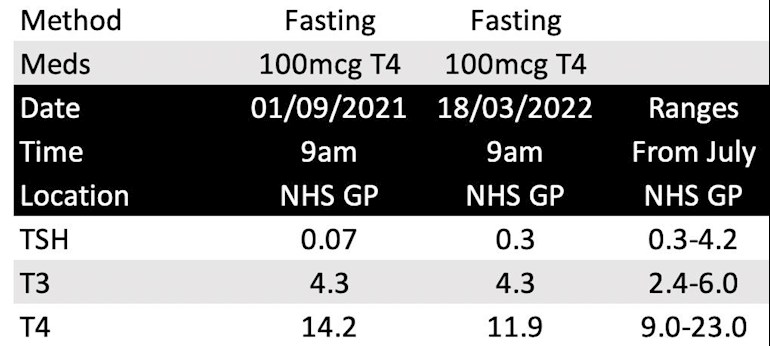Hello
My 65 year old mother is very unwell and been on Levo-only for over 20 years and has Hashi's.
Typical symptoms: low energy, fatigue, struggles to wake in AM, hair thinning, feeling cold, weight gain.
After writing multiple letters to her GP and asking for Endo referral and then writing more letters to her Endo, he has agreed to a trial of Liothyronin. This came with a huge caveat from him that he does not recommend Lio and that there's a lot of risks! She hasn't yet commenced Lio as she's been frightened off by the Endo, but I still persevere and use my own example as someone who has benefited.
Based on her current blood test results on 100mcg Levo only, he has recommended she reduce Levo to 75mcg and add in 5mcg of Lio. I think that it's bonkers advice as her T4 is at the bottom of the range already!
What would you recommend, should she first try to raise her T4 levels with more Levo or keep Levo at 100mcg and start Lio and see how she feels?
Curious if anyone has any idea why her T4 could have dropped so much in 6 months with no change in diet, drugs or lifestyle?
